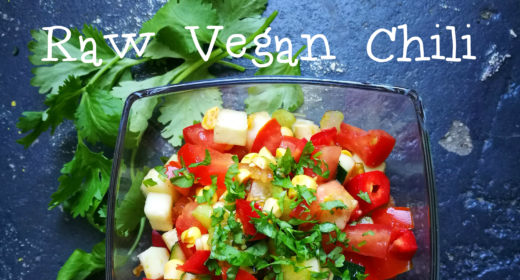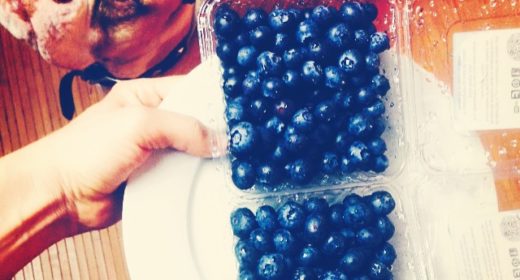Vegan Diets Done Successfully – Tips from Ali
I feel with the trends moving towards keto, carnivore, and specialty diets it’s a good time to write another vegan or vegan-ish post.
First of all, why would we want to do vegan? or vegan-ish?
There are certain benefits we can all experience from whole plant nutrition. It can help the kidneys and liver, the lymphatic system. Shown to be preventative for diabetes, heart disease, kidney stones, gout, and more. I personally find it to be an easier diet to maintain than any other lifestyle. It does take some learning and tuning in. Nutrition is in essence information and frequency. It is mostly supportive of our consciousness. We think of nutrition as bodybuilding but beyond that, it actually serves our consciousness. We are here on an evolutionary soul journey so in my humble opinion the less we engage in suffering the better for our own path. I have a burning fire in my heart that pushes me towards continuously searching, striving, and learning.
High in whole plant diets can get you to your perfect weight effortlessly. I never count calories or push myself to burn calories. I find that I prefer an effortless flow in my life with a bit of movement and seasonal rich in color and flavor food.
For me, it’s the unquestionable knowing that I do not wish to participate in anyone’s murder. I also really have compassion for the entire farm animal category- they are some of the sweetest, most innocent animals on earth. They have served humanity for a long time completely selflessly. Cows are quiet gorgeous beings and I know in a thousand years from now eating their flesh will be a thing of the past. The same goes for sheep.
With their milk – there is an even bigger conundrum. They need to keep getting pregnant and the babies need to pretty much be “removed” in order for a large amount of milk to be produced for humans. I have watched with one eye closed the “removal” of the male newborn calves and it is not something any human should ever knowingly participate in. We really do not need flesh for health as much as many diets would tell you we do. Arguably milk is even more problematic than meat as far as compassion goes. Also, I can see how milk was needed in cold climates where there wasn’t enough food in winter. It was nutritionally beneficial for humans to consume it. However, relying on milk for daily nutritional needs as a grown adult makes very little sense. Large mammals wean as they reach a certain age; humans wean for a reason as well. Cross-species milk may have certain applications in the case of not enough local food or malnourishment but overall I believe we should at least severely minimize it if not exclude it. If we all had it infrequently that would drastically change the industry altogether. Raw milk is far better than pasteurized milk but again – the compassion consideration has to be factored in. I don’t believe in being dogmatic and making no exceptions. If 90% of what we do is well thought out of we will have a different world. I would let Loti – my daughter get a non-vegan sorbet at the restaurant we go to on occasion. I have offered her raw kefir in case she wants milk – haha she finds yogurty texture gross so she gave me a very surprised look. My point is – I have told her if she wants a certain food we will source good quality one. I don’t believe in being dogmatic at all.
That’s in short my own reasoning for not wanting to consume animal flesh or secretions. I would make an odd exception for sheep’s yogurt once every few years. Whenever I have made an exception neither the taste nor the effect seems very favorable. I don’t feel like I am lacking in dairy for nutritional reasons. As for flavor – I must say the only animal food I have always liked and at first missed was indeed sheep yogurt- it has lost its appeal since but I find young coconut yogurt to have a very similar taste. My grandparents were sheep farmers so growing up I had access to real homemade thick sheep yogurt and there is nothing like Bulgarian yogurt. Let’s leave it at that. A little trivia – my grandpa- the sheep and cow dairy farmer – would not touch milk. Hell, he wouldn’t touch utensils that have touched milk. He loved the animals and had a special bond with the sheep. As close as with his dogs.
Eggs can be included in a diet where you feel that you are not getting enough nutrients from the plants. Overall better tweak things than fall off the diet completely.
I do feel that when needed small amounts of milk are better than failing on a diet.
The same goes for fish – if you need to include it once or twice a week in order to make your diet work- that’s a smarter choice than failing on a vegan diet altogether.
Another side note is to not follow anyone’s guidelines strictly. You have to learn from those who have been successful long term and develop your own way that is suited to your body, to your climate, and your preferences.
I find a vegan diet easy and sustainable. The simpler the approach the better. If the bulk of your nutrition is your favorite whole foods, organic if possible and then if you include some experimental “superfoods” you can easily reach all your nutritional requirements.
Now onto my discoveries of how to make the vegan diet work.
- Raw is amazing but it only works in warmer and more tropical climates. I wouldn’t attempt doing all raw in a very cold northern climate where the raw produce is imported from warmer climates. We must consider the local produce, the traditional diet, and lifestyle, and base things loosely on that. Personally mostly raw has worked for me in California. I feel nourished yet light, energized, and supported by my diet. Raw plant material tends to not burden the liver and kidneys. In most cases, it helps with their detox. It helps with the lymphatic system as well.
- One major rule I discovered about 10 years ago is that if I am doing raw I must eat a minimum of 5 oz a day maybe double that of baby greens or some sort of lettuces a day. If I do that I never feel any nutritional deficiencies. The way I explain it to myself is that cow meat and cow milk are basically a product of grass feeding. If I have a strong stomach acid then I can go to the soft greens myself. Works for me. It has been my main rule that has helped with everything from microbiome to digestion to satiety.
- Seasonal produce. Also, local produce when possible. Variety is key. Also love for fruits and veggies is key. That is a learned love. If we grew up on processed foods we have to rekindle our connection to earth and her offerings.
- Cooking is also an important skill. We connect to our own food. Prepped food and restaurant food are ok but we must love to cook or we will rely on processed foods too much.
- Whole foods for 90% of the diet. I don’t think we can get around that one. We will feel the effects of processed foods over time. They do not support good health, good microbiome, or good digestion.
- This one is entirely optional but in terms of sharing what works for me – some form of intermittent fasting is a must for me. I couldn’t eat proper meals all day long and feel good. My stomach needs rest for a portion of the day. My energy is better, my mental clarity is better and my digestion is superb.
- I also find that I need less and less food with age. The amount of calories is also reliant on how active I am. If I am doing just basic things around the house and a 12-minute workout I find that I am not ravenous.
- Drinks- warm elixirs, nutritional tonics, herbal infusions, etc. Herbal remedies tend to be individual so experiment and find what supports your health and diet. I like many herbs and “superfoods”- I drink hot cocoa. I add ho shou wu, ashwagandha, chaga, reishi, sea moss, turmeric, and other herbs to it. It helps with extra fluids during the cold months when I don’t feel like room-temperature water.
- Speaking of water- get clean water and wash your produce with clean water. Water quality in America has rapidly deteriorated in the past decade. That goes for well water, rainwater, and municipal water. I filter my water in 2 stages. First reverse osmosis or Berkey and then distilled. Distilled water is probably the best water other than glacier water. It pulls inorganic matter from us. Minerals deposit over the years in the arteries, kidneys, and joints. Arthritis is a form of toxicity – extra material depositing on the joints. When I first started distilling water I could feel the water pulling inorganic matter from my joints. Now I don’t feel much. It’s just the best water for me. There are many distillers on the market- the main issue is – all parts that touch the water should be 304 stainless steel interior and piping. The other consideration is whether the distiller maintains a certain temperature throughout the distillation process. I love the Megahome I have – it comes with a glass pitcher. Once purchased it should last you a long time.
- Supplements. We are all different and need to find our unique mix of supplements. I tend to not take anything on a daily basis. I do take a few things on a weekly basis and sometimes I experiment with something new I heard about and bought for the sake of experimentation. The things I take on a weekly bases are below.
VITAMINS/SUPPLEMENTS
- Vit D/K2, or Sun. building the sun callous layer, eating the dark leafy greens and bright-colored fruits helps with building a more resilient skin layer. There are multiple studies showing the benefits of Vit D and Sun exposure. The latter is obviously better but do a mix. The sun lowers (doesnt higher) our chance of sun cancer. Of course, avoid the very bright sun and seek the sunrise – sunset rays. Be a sunset chaser 🙂
- Thyadine Iodine. I have used it for a decade and I hope they never stop making it. It will help balance your metabolism and it helps with energy, weight loss if needed, thyroid health. This particular form of iodine also has homeopathic thyroid and homeopathic seaweed added to it so it helps the body on an energetic level. I also use Iodine for any wound or injury- for that, you can get cheap iodine from the grocery store. Povidone – it should be cheaper if you find it at your local pharmacy. I got my last bottle at HEB in Texas and I still have almost a full bottle. Lugols is another highly prised form of iodine. It is not absorbed well as a supplement but it is used where you need to block radiation. I have all forms of iodine 🙂 . Most people are deficient in iodine so it is wise to supplement as well as include seaweed into your diet. The seaweed subject requires a post of its own. Other common nutritional deficiencies are selenium, boron, and magnesium all of which are more important for bone health than calcium.
- Cold climate or winter nutrition should definitely be adjusted with more cooked foods, steamed or cooked veggies, beans, potatoes, sourdough, kimchi, flax seed, nut cheeses, etc. One thing I have noticed is that I have never suffered from dry skin no matter how dry the climate I live in is. I lived in Vegas and the only time I saw the beginning of dry skin is when I increased my nut intake. Basically, fruits are key in the dry summer months and a bit more fat and cooked is key in the dry cold winter months. Also if you feel deficient do include eggs or milk in the winter. I have egg intolerance but philosophically it makes sense to me to make a farm sustainable and bring poultry for the eggs and the chicken poop 🙂 My point is better to tweak things than to fall off and go to steak daily. Learning over dogma. Be open to adjusting, learning, and tweaking things until you get to where you want to go.
- Use cronometer or other nutrient-tracking apps. Don’t consider these apps an absolute but rather a helpful tool. The apps cannot possibly know the macronutrients in food – that’s all based on the soil + your digestion. The apps do not know how much you can absorb from your food so again it is simply a tool but not an absolute measure of nutrition.
- Learn to move properly and breathe properly. Breath is an integral component of health. The better we breathe the better we are at utilizing prana. Prana is the essence of everything. Food and in particular fruit is densified light and prana; it is also information. That’s a hard concept to grasp for a mind indoctrinated into reductionism and scientism.
- Learn to think right and trust that what you are doing is GOOD. If you doubt your diet then it is most likely not going to work because your mind is very powerful. If you relax, release stress and anxiety, breathe into your body, and ask for divine guidance you will find the right tools, support, nutrients, diet, and lifestyle.
- Remember that no diet will ever make you immortal or invincible. We all go through things in life and that’s just the fact of being in a physical body in duality. Every disease has its meaning and lessons. We have to learn to have gratitude when the body speaks to us through symptoms. Symptoms are often communication or resolution rather than the disease itself.
- On the other hand the better your digestion and breathing the less you need solid food – you utilize everything optimally and thus the body is not constantly digesting food. This applies to people over 40. In our 20s we burn food like crazy- our metabolism is revved up. Growing kids also need a lot of nutrition. As we slow down our appetite adjusts. I find that I prefer a bit less activity and less food for a portion of the year. Then of course vacation time comes which means lots of walking in Bulgaria. Go with the ebb and flow of life.
- You can experiment with high-quality protein powders. They are by no means a must but they can be fun. I have come across different powders. Some I like more than others. I tend to prefer the pumpkin seed-based protein blends. I also came across this one pea fermented with shiitaki mycelium by a brand called ZHOU and finished a whole jar which is new for me. Their claim is that it is predigested by the mycelium so it’s easy on the tummy. It tastes great in my orange smoothies. I am not known to finish protein powders ever. There are so many protein powder brands nowadays I feel everywhere I turn I see rows and rows of them.
- Whole sources of protein include – greens, soaked and cooked beans, sprouted lentils, hemp, and other seeds and seed cheeses. A fun unusual source- I have bought organic red lentil pasta quite a few times and my daughter LOVES IT!!! She is not a fan of green lentil pasta or chickpea pasta so just experiment for yourself. Bean pasta go so well in salads. You get the pasta texture with the bean taste – a win-win :). Regular pasta is also very high in protein. If you find organic wheat pasta – white or whole wheat it is typically 13 grams of protein per serving. I personally don’t consume a whole lot of grains because I am more on the raw end but pasta can be great. Tofu, Tempeh are delicious as well. Soy milk (is technically processed but it has some good health benefits. I feel it was unfairly attacked due to all the gmo soy isolate products, same with wheat and glyphosates which made everyone sensitive to the gluten) are high in protein as well. Source them organic and rotate them with other foods. Natto is a source of vit K and nattokinase. Edamame, spirulina, qionoa, chia, sourdough, etc. Potatoes have a great amino acid profile. When in doubt or in a cold climate source good eggs. Again I have not found that to be something I need but I live in California and I have access to lots of produce year round.
- Do occasional parasite cleanse so your cravings are not coming from those little critters? They can make you crave sugar and experience anxiety, they can cause anemia. I have been deep down the parasite-cleansing rabbit hole and it seems that it’s one of the key components of health – keeping the body seasonally cleansed. Parasite infestations are usually a symptom rather than a cause. The underlying cause that invited them to a party can be some sort of toxicity in the body- pesticides, chemicals, heavy metals, etc. Typically they are there because there is some weakness in the body. I notice that is true in gardening. Pests can plants frequency. if the plant is sick or weak or nutritionally deficient – then they will infest it and in simply put terms – they will break it down. That’s in essence what germs do to us. I am a firm believer in theraine therapy plus german new medicine. Germs are beneficial – they arise from within in order to help us detox. When we became infested from an external source – that is because our field was already weakened. There are interesting exceptions in gardening. I had a weak passionfruit plant that the snails were infesting and the plant couldn’t leaf or flower because the snails would eat the young flowers. I thought it’s maybe nutritionally deficient. Come to find out the previous owner had goats and they had eaten and stressed out the plant. Once I removed the snails with an organic bait – the plant got strong and now the snails do not go to it. They sense it doesn’t need to be killed and broken down.
- Of course, I have a million more common and unorthodox tips but I don’t wish to make this post endless.
- I hope this inspired you to whip up a sunflower cheese recipe and bite into a pear 🙂
Related Posts:
5 Comments
Leave a Comment
You must be logged in to post a comment.










I’m really enjoying your nutrition posts! They’re so non-dogmatic while offering really helpful insights from your own intuitive practice. A question for you: I struggle quite a bit with burping. Deep, loud, frequent burps at times. My mother does this, too. Often, I find they’re worst before I break my daily fast. How do you understand burps? I’m a big believer that my body is intelligent and sending me messages, but I don’t always know how to interpret those messages.
I’m really enjoying your nutrition posts! They’re non-dogmatic while offering helpful insights from your own intuitive practice. Perhaps this is TMI for a question, but I suspect you don’t shy away from these types of questions 🙂
I struggle quite a bit with excessive burping. Deep, loud, frequent burps at times. My mother does this, too. Often, I find they’re worst 8-10 hours into my daily fast. How do you understand burps? I’m a big believer that my body is sending me messages, but I don’t always know how to interpret those messages.
Thank you!
Thank you. I dont knwo but things to investigate and inquire about would be low hydrochloric acid of the stomach, parasites, etc. Burping before food is a signal of some microbiome imbalance i think. ACV could be a test to see – if it resolves it then its low stomach acid.
Thank you! This is really helpful. By an ACV test, do you mean simply drinking a bit of apple cider vinegar before meals to see if that extra acid is what my stomach needs?
yes.